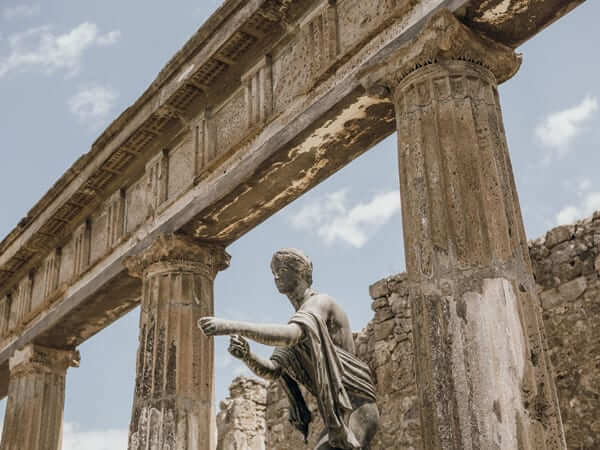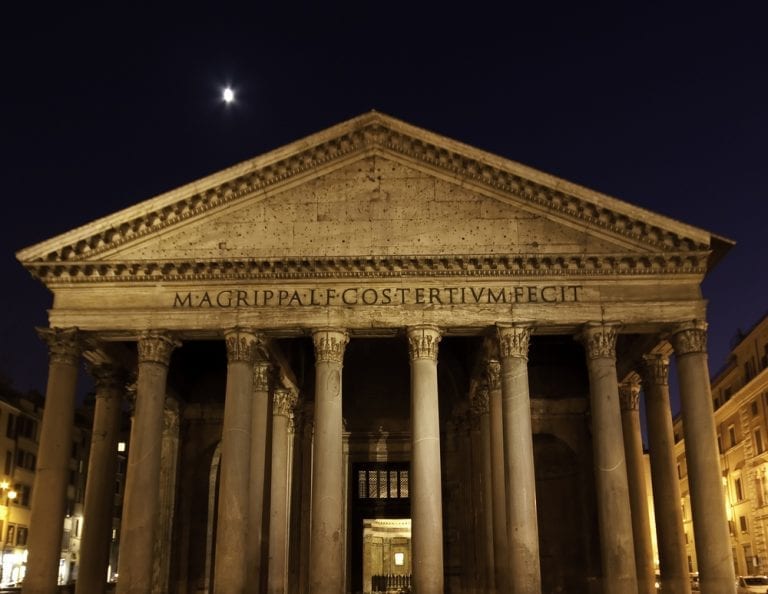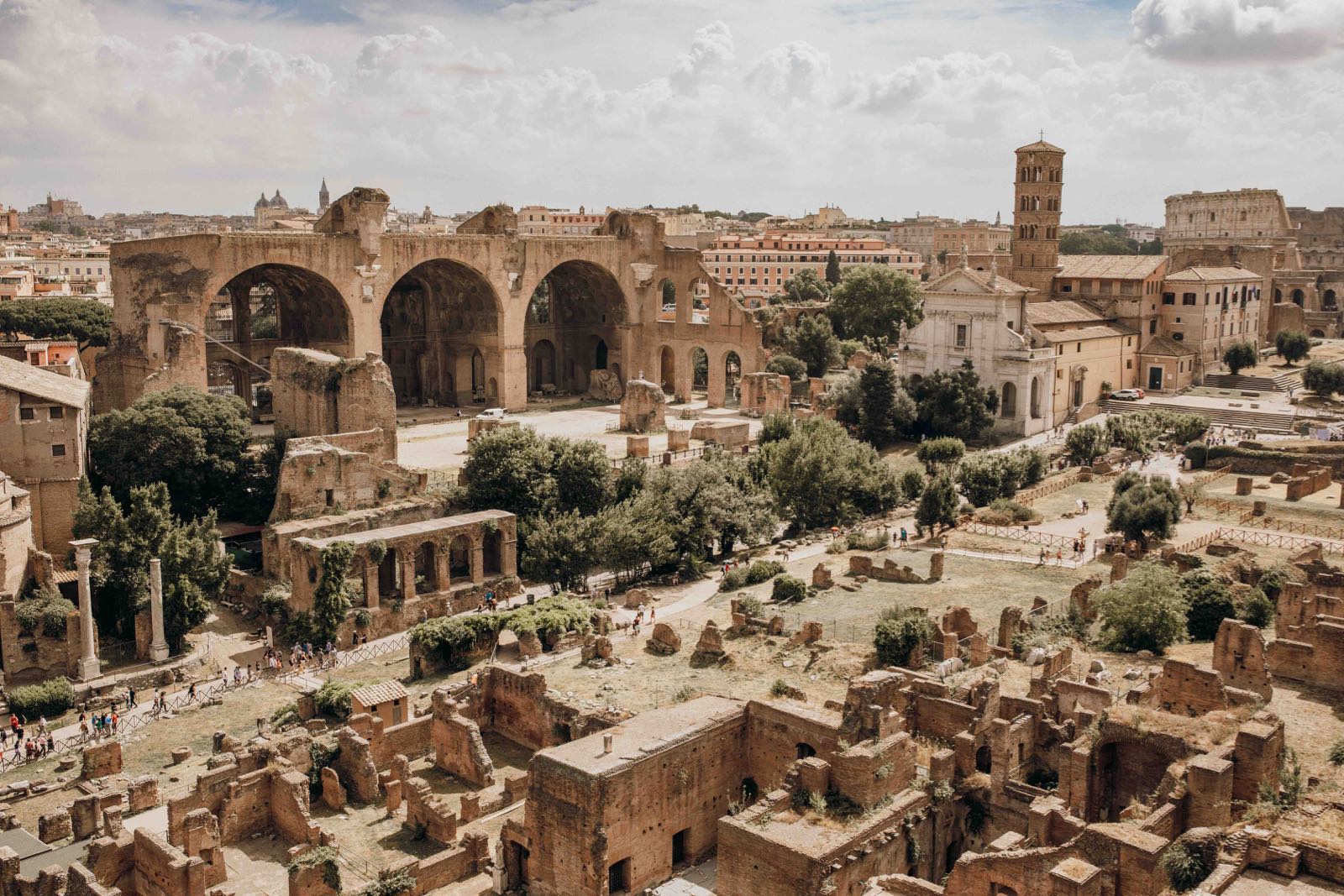
Caesar Augustus: 8 Fascinating Facts About Rome’s First Emperor
June 6, 2025
Heir to Julius Caesar, he was one of the most famous (and controversial) leaders from Ancient Rome, but how many facts about Caesar Augustus do you know?
A visionary who transformed Rome from a fractured republic into a powerful empire, Caesar Augustus, born Octavian Augustus, was one of Rome’s most iconic figures. Known for his sharp political instincts and shrewd reforms, Augustus Caesar’s accomplishments can still be seen around Rome centuries later. Yet, there are still some surprising secrets about the man who became a respected stateman, eventually rising to become Emperor Augustus.
From political strife to private life, here are eight fascinating facts that reveal the surprising and lesser-known sides of one of history’s most influential rulers, Caesar Augustus.
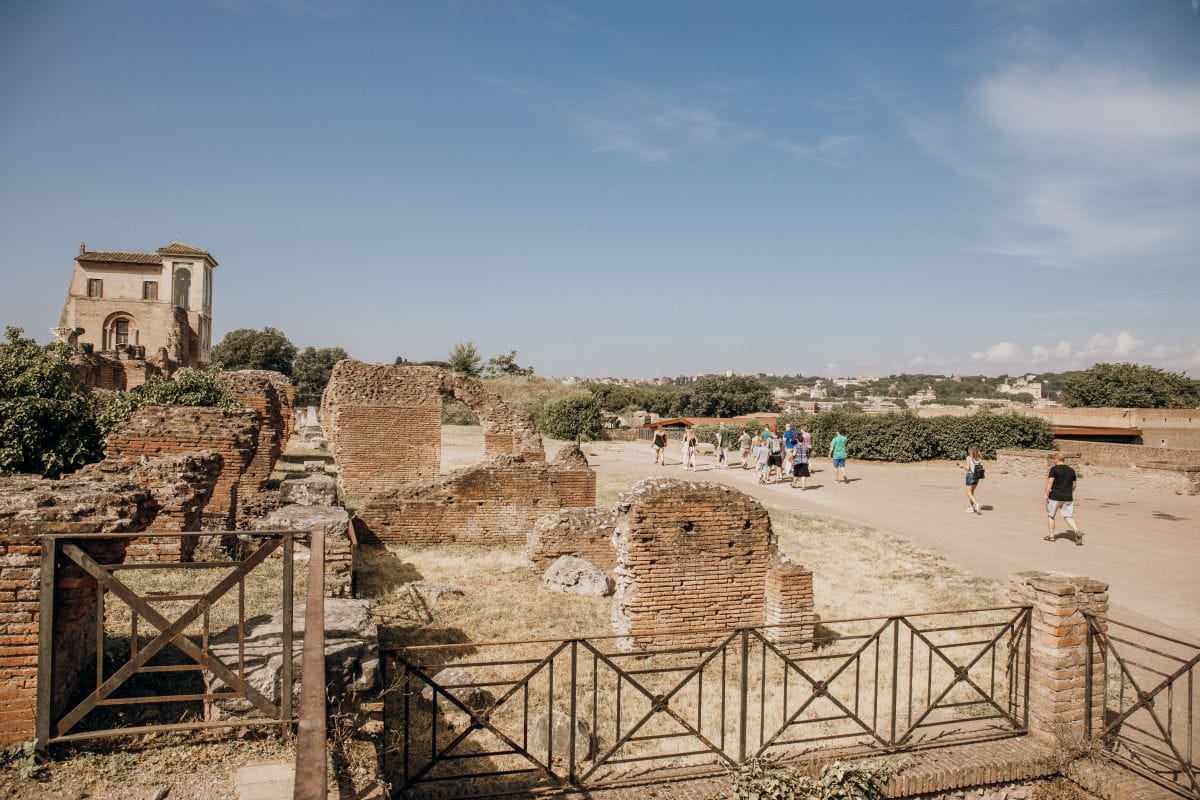
Today, visitors can explore the home of Augustus Caesar on our VIP tour of Caesar’s Palace in Rome.
Table of Contents
ToggleInteresting Facts About Augustus Caesar
Who Was Augustus Caesar?
1. He was adopted by Julius Caesar
Busy ruling an Empire, Julius Caesar had only one legitimate daughter – Julia Caesaris – who passed away upon giving birth in 54 BCE. Soon, the time came when the Roman leader had no other option but to adopt his closest male relative, as was commonly done within the Roman Empire. His great-nephew, Gaius Octavius proved to be the lucky candidate. Though he was trained in from a young age and accompanied Julius on campaigns abroad, Octavius didn’t actually find out he was adopted until Julius was assassinated. To his (and the Roman government’s) surprise the young eighteen year old was proclaimed Caesar’s successor when his will was read out in the Senate, igniting a bitter struggle for power.
Early Life of Octavian Augustus
2. His name means “exalted”
Born Gaius Octavius (or Octavian), the young leader took the name ‘Augustus Caesar’ following Julius Caesar’s death. In the world of Ancient Roman politics, public perception was everything. Augustus was well aware he needed to capitalise on his familial name to earn the people’s trust – even if he was only distantly related to Julius Caesar (more on this to come). Derived from the latin word ‘auger’ meaning ‘to increase’, the former part of his name, ‘Augustus’, means ‘serene’ or ‘exalted’. So combined, his name implies ‘adding to’ the already substantial legacy of his predecessor. This might seem like a tall order, but not when one considers…
Insider’s Tip: If you’re dying to learn more about ancient Rome and all of its fascinating history, we’ve rounded up the best podcasts about ancient Rome.
Major Accomplishments of Emperor Augustus
3. He is remembered for bringing about a 200 year long period of peace for the Roman Empire
One of the most significant aspects of Augustus’ reign was that he ushered in a two hundred year long period of relative peace within the Roman Empire, which came to be known as Pax Romana. This sounds idyllic but rather than a period of utopia-like harmony, it was more like one of heavily enforced hegemony.
Augustus didn’t trust the Provincial governors to manage Rome’s tribute states and preferred to keep a close eye on them himself. Using his vast powers within the Senate, he marshalled extra forces to visit all of the conquered territories to ensure they were kept in-line. He raised payments for his soldiers and rewarded them handsomely for quelling any would-be rebellions. He also introduced a personal bodyguard for himself called the ‘Praetorian Guard’ to ensure history didn’t repeat itself in the form of an assassination attempt, as befell his predecessor, Julius Caesar. While most of Rome’s leaders ensured their protection with a personal entourage (particularly during times of conflict), Augustus was the first to establish one permanently. He also vastly increased his bodyguard’s size, making up a total of nine cohorts, composed of 4,500 soldiers. So it’s pretty unsurprising the people were keen to keep the peace!
Top Augustus Caesar accomplishments:
- Transformed Rome from a republic to an empire.
- Reorganized the senate, army, and tax system.
- Reduced civil wars and internal conflict after years of chaos.
- Transformed Rome with grand architectural projects, such as temples, roads, aqueducts, and the Forum of Augustus
- Restored or built over 80 temples throughout the city.
- Expanded the empire into Egypt, northern Spain, and parts of central Europe
4. Won a bitter war against Antony and Cleopatra
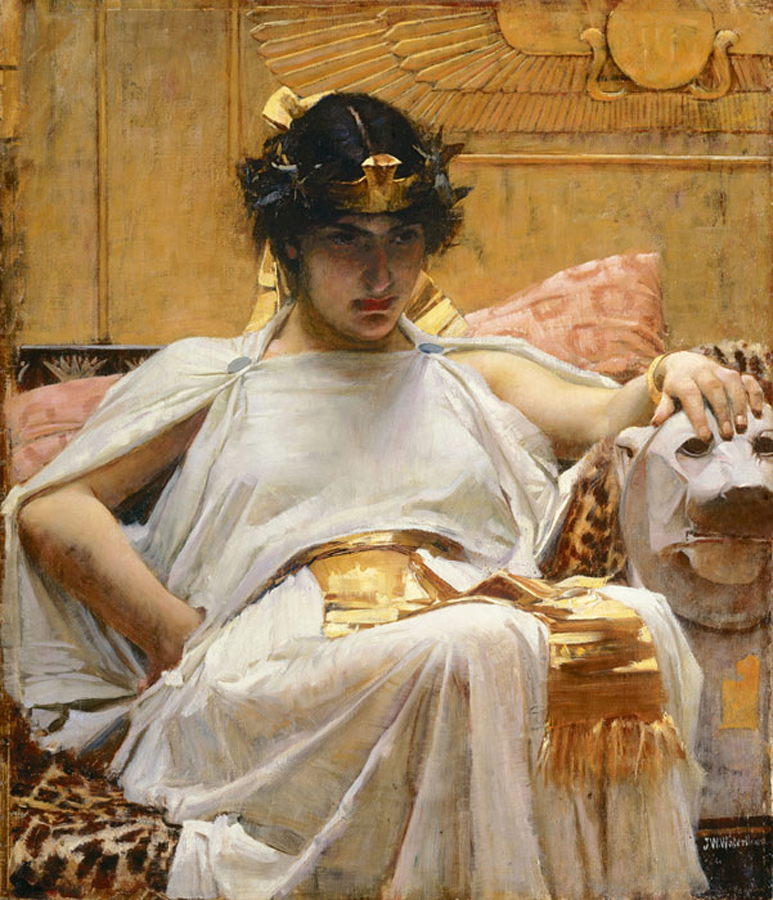
Cleopatra – a major rival to Octavius’ rule – as painted by John William Waterhouse. Photo via Wikicommons.
After Julius Caesar was murdered in 44 BC, the Roman Empire erupted into a bitter civil war. An unsteady triumvirate (or, three-way leadership) took grasp of the Roman Senate. Eventually, two politicians emerged as the forerunners for power: Mark Antony and Octavian. Mark Antony who had been a loyal supporter of Julius Caesar in the Senate and served as his general abroad, was the clear favourite to be named as his successor.
That is, until it emerged Octavian was named in Caesar’s will. The Senate was divided in support for the two. Soon Mark Antony teamed up with the Egyptian Queen, Cleopatra. A pragmatic and ambitious ruler, she was also mother to Julius Caesar’s sole heir, Caesarion which strengthened their claim to rule. Their forces met in the decisive battle of the Roman civil war, known as The Battle of Actium. With a superior naval fleet, Octavian’s army claimed victory and the lovers committed suicide in Shakespearean-style fashion, creating the subject matter for many artistic depictions. After ordering Caesarion’s death, Octavian was left as the unrivalled ruler of the Roman Republic.
Augustus Caesar Facts: Surprising Details
5. He was a military ruler – and a patron of the arts
Who says you can’t have it all? Though he’s mostly remembered as a military commander, Augustus was also an avid supporter of the arts and commissioned many sculptures from Roman artists during his reign. Of course, these pieces had an alternative function. In addition to their decorative function, they also served to create an image of the Emperor that he wished the people to see. Numerous sculptures were made during his lifetime, which exaggerated different aspects of Caesar Augustus and were intended to legitimise his position. For example, many of the statues emphasised his divine right to rule and drew on the fact he was descended from the ancient founder of Rome, Romulus. One statue that is currently kept in the Vatican (and can be seen on our small-group Vatican tours) known as Augustus of Prima Porta depicts him in armour with a young Cupid at his feet, highlighting his divine connection with the gods.
What Was Augustus Known For?
6. He never officially claimed the title of Emperor for himself
The Roman Empire had an aversion to naming absolute rulers. That’s why instead of naming ‘kings’, they had emperors. Even if, ironically, the emperor usually held a lot more power. Much of what Augustus did was modelled on the behaviour of Julius Caesar, who repeatedly refused the epigraph of ‘Rex’ (King). So instead of accepting any absolute titles, Augustus preferred to be called Princeps Civitas – First Citizen of the State. Nevertheless, he was widely acknowledged to be the first Roman Emperor and was by no means modest in letting everyone known the impact he had on the State, famously declaring on his deathbed, “I found Rome a city of bricks, and left it a city of marble”.
7. … but he did name a month after himself
No prizes for guessing which month honours this Roman leader! Before 8 B.C. August was known as Sextilis (seeing as it was the sixth month in the Roman calendar). Once again, Augustus took inspiration from Julius Caesar – who had taken the liberty of naming the fifth month of the Roman Calendar (previously called Quintilis) after himself – and changed Sextilis to August. Naturally, this was a fool-proof way for the Roman leaders to cement themselves into the people’s consciousness, but little did they imagine that over 2,000 years later this calendar would still be in use throughout the Western world.
Traveler’s tip: For a really great insight into this historic legend, take our VIP Caesar’s Palace Tour. No, not the one in Las Vegas! But this tour has plenty of thrill and excitement all of its own. We’ll also visit the Colosseum and the Roman Forum for a complete picture of life in Ancient Rome.
8. He was officially declared a god
In 14 A.D., Caesar Augustus died of natural causes near Naples. His body was returned to Rome and as a show of deep respect for the statesman, nearby businesses closed down for the day of his funeral. The impact he had made on the Roman Empire and the life of Roman citizens was clear but did you know that after his death he was also declared a god? Like Julius Caesar before him, the Senate made an official dictate after he died that placed him in the pantheon of Roman gods worshipped throughout the Empire.
Insider’s tip: Want to learn more about the iconic figures behind Rome? Read about the genius of Bernini who built some of Rome’s most iconic works.
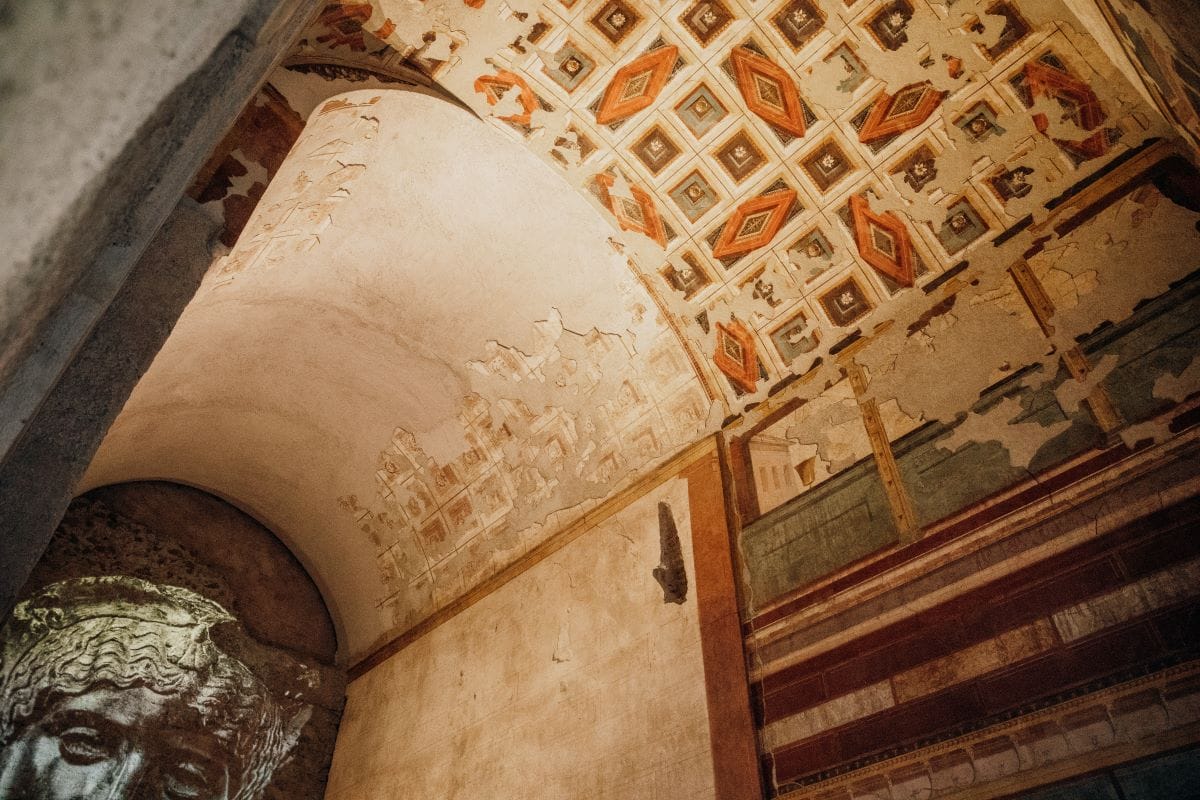
On a tour of Caesar Augustus’ home, you can still see the impressive and ornate frescos painted on the walls and ceilings.
FAQ About Augustus Caesar
Who was Augustus Caesar and why is he important?
Augustus Caesar, also known as Emperor Augustus and born as Octavian, was the first Roman emperor who transformed Rome from a republic to an empire. He is known for his political reforms, military successes, and ushering in the Pax Romana, a long period of relative peace.
What are some interesting facts about Augustus Caesar?
Augustus Caesar was adopted by Julius Caesar, reigned for over 40 years, and was the architect of the Roman Empire’s golden age. He also survived many assassination attempts and was deified by the Roman Senate after his death.
What was Augustus Caesar known for?
Augustus was known for consolidating power, initiating major building projects in Rome, reforming the tax system, and expanding the empire’s territory. His reign marked the beginning of the Pax Romana.
How did Octavian become Augustus?
After Julius Caesar’s assassination, Octavian defeated his rivals in a series of civil wars, earning the title ‘Augustus’ from the Senate in 27 BC, symbolizing his new status as Rome’s first emperor.
What were Augustus Caesar’s greatest accomplishments?
His greatest accomplishments include the establishment of the principate, expansion of the Roman Empire, reorganization of Roman governance, and fostering a stable and prosperous era for Rome.
Want to walk in the footsteps of Augustus Caesar? Explore our VIP Caesar’s Palace Tour with Colosseum and Roman Forum. You’ll gain exclusive access to the Casa di Augusto, the first-century villa of Rome’s legendary statesman, Caesar Augustus while learning how he shaped history, and interesting details of his personal life. Then, get a glimpse of the daily lives of ancient Romans at the Forum before ending at the Colosseum. When in Rome…join us!
by Aoife Bradshaw
View more by Aoife ›Book a Tour
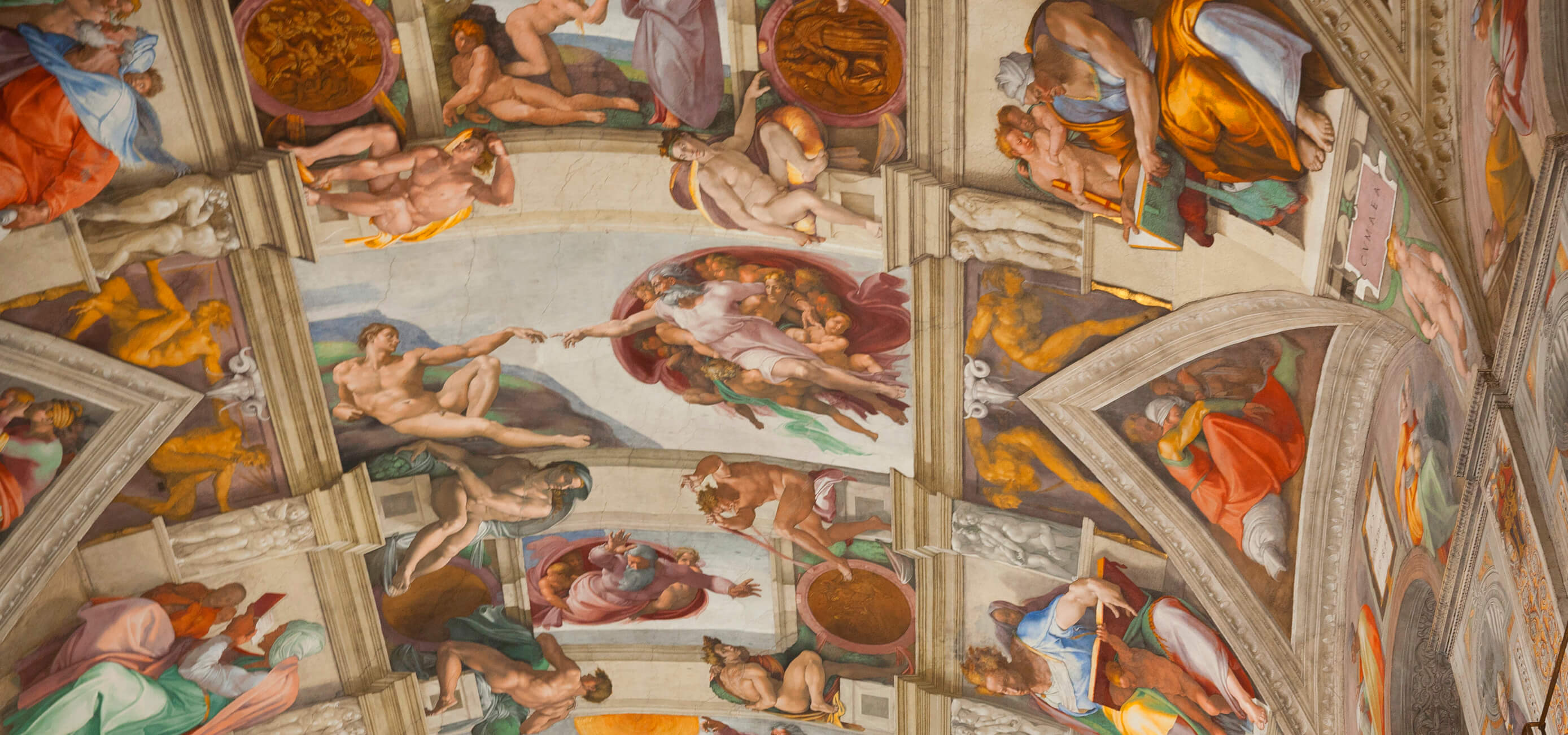
Pristine Sistine - The Chapel at its Best
€89
1794 reviews
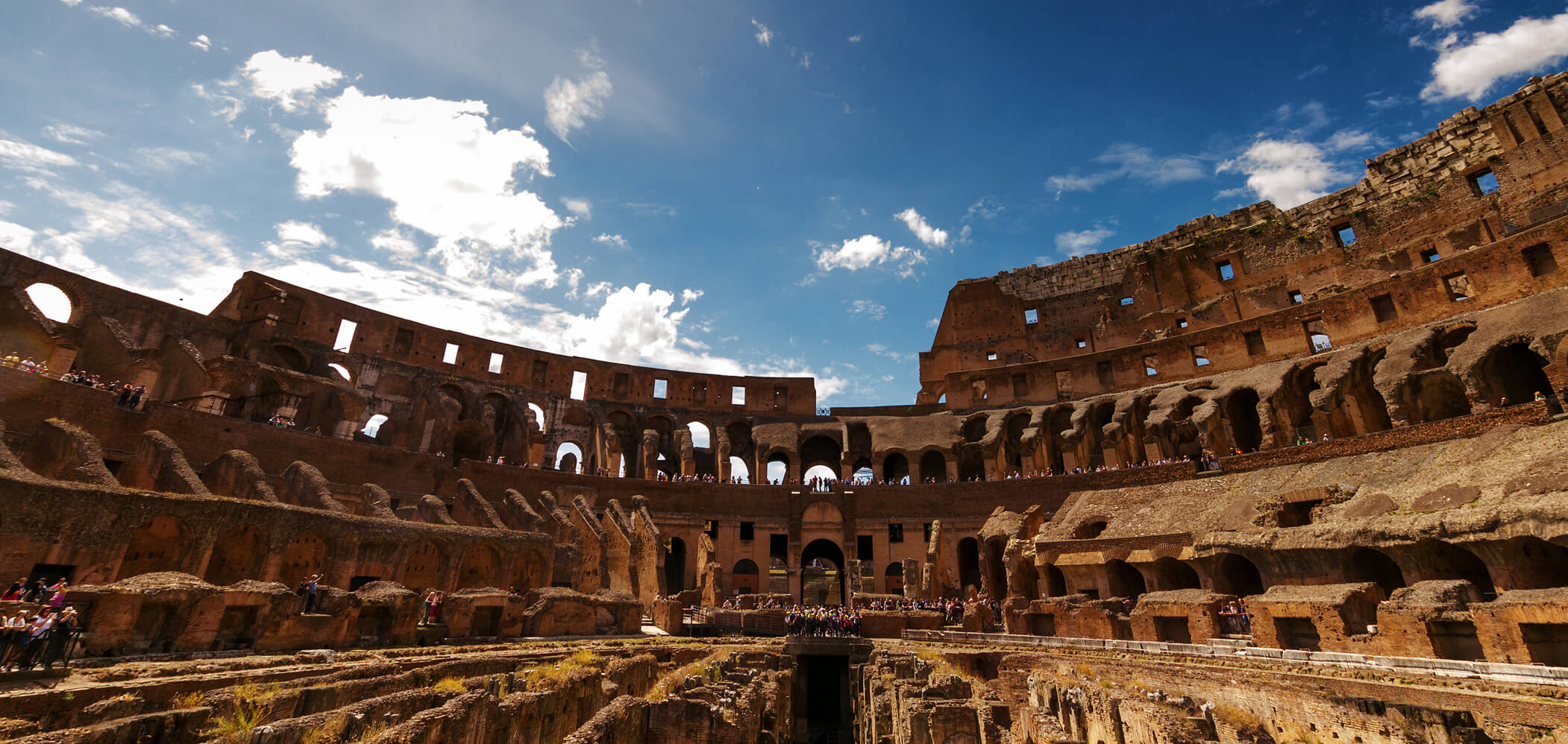
Premium Colosseum Tour with Roman Forum Palatine Hill
€56
850 reviews

Pasta-Making Class: Cook, Dine Drink Wine with a Local Chef
€64
121 reviews
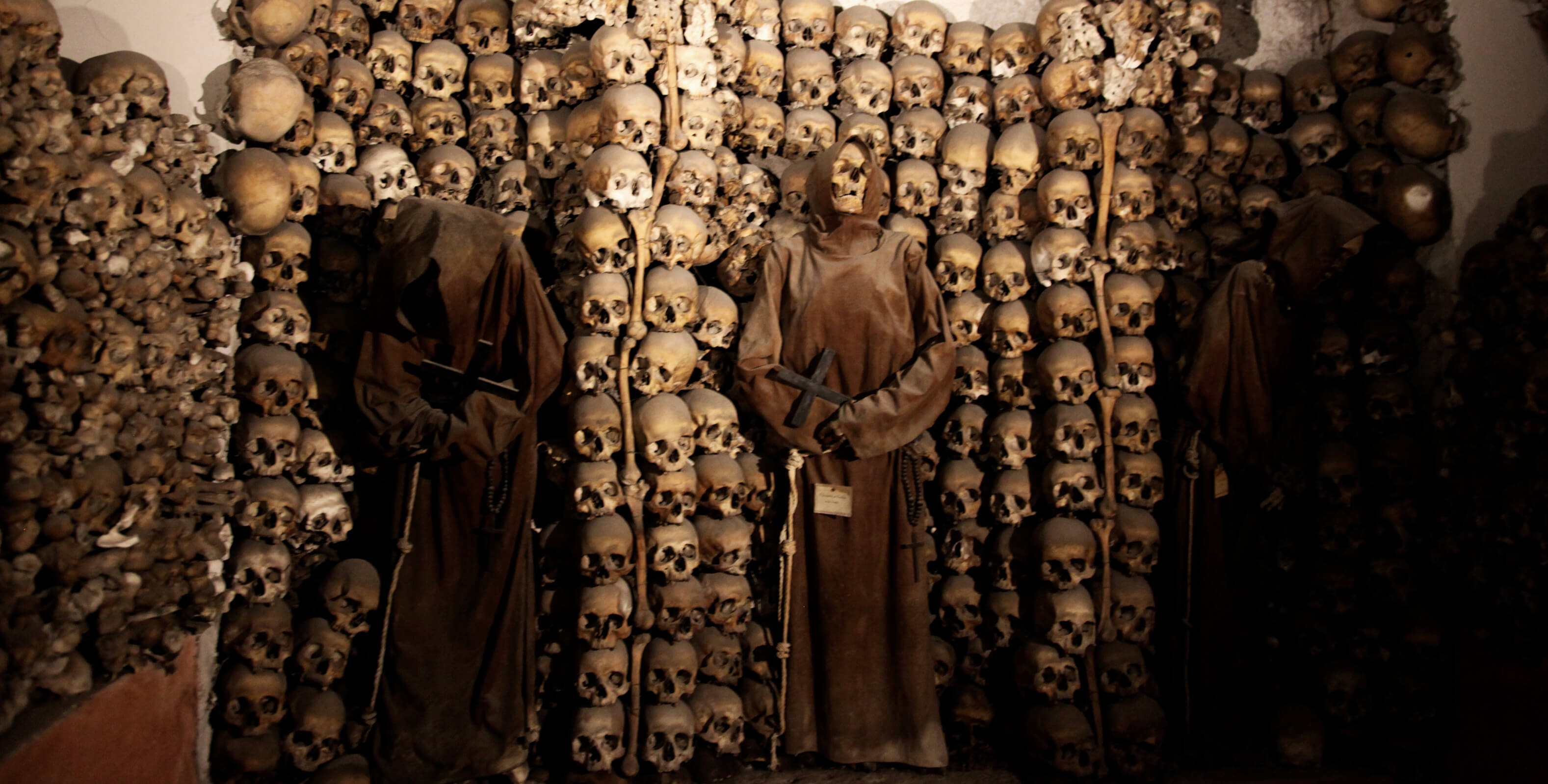
Crypts, Bones Catacombs: Underground Tour of Rome
€69
401 reviews

VIP Doge's Palace Secret Passages Tour
€79
18 reviews
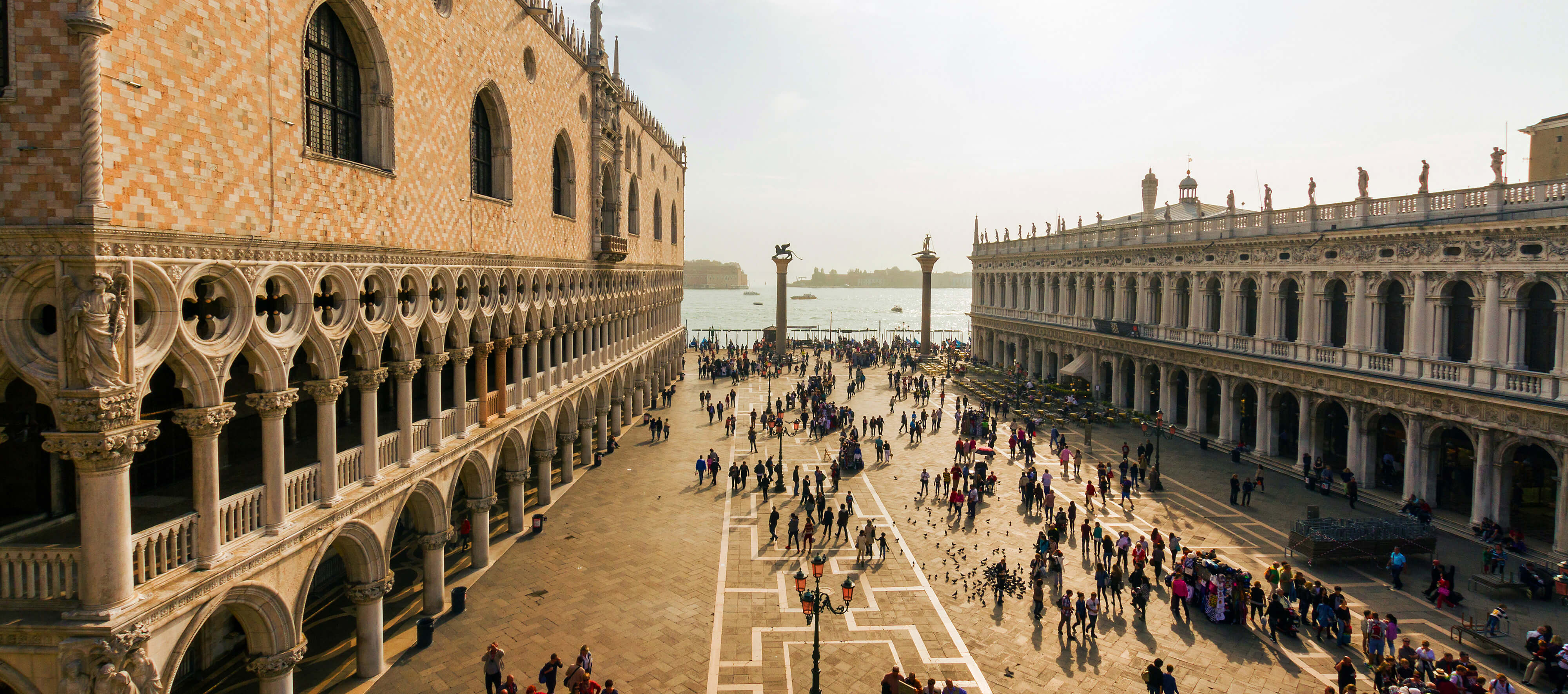
Legendary Venice: St. Mark's Basilica, Terrace Doge's Palace
€69
286 reviews




